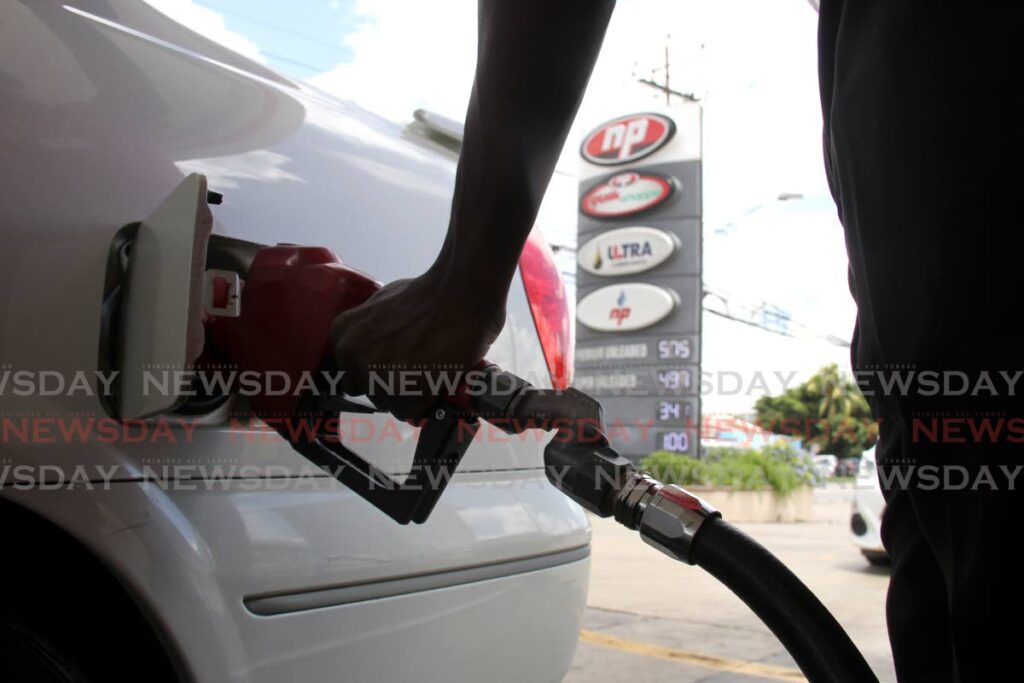Prime Minister: Brace for gas price hike

The Prime Minister has said the population cannot be insulated from the effects of changes in the price of oil, as the cost of maintaining the fuel subsidy has become prohibitive.
He put the nation on notice that the recent increase in the price of oil could lead to an increase of prices at the pump in Trinidad and Tobago.
Speaking at a Conversations with the Prime Minister at the Bon Air West Community Centre on Tuesday, Dr Rowley said the current high prices of oil on the world market would not insulate TT, as the country has been importing crude oil to refine it for export.
Rowley said if government removes the subsidy, premium gasoline would go from $5.75 per litre to $7.58, super gasoline would go from $4.97 to $7.46 per litre, and diesel from $3.71 to $6.58 per litre.
“We will see how much funding we can find to take the pressure off the population, but they cannot be insulated completely. I don’t see the hike in oil prices as opening up volumes, because we are not producing the same levels as before."
Currently, filling a car with premium gasoline takes approximately $180, while at the new price it would cost $235. Filling the tank of an SUV with super costs $300; at the new price it would cost $450. Filling the tank of a pickup costs approximately $205, while at the new price it would cost $363. A maxi taxi currently takes $280 to fill its tank, and with new prices this could cost $497.
Prices were raised in 2012, when premium went to $5.75 per litre; in 2015 when super gasoline went from $2.70 to $3.11 per litre and diesel to $1.72 from $1.50 per litre; in 2016, when super gasoline went to $3.58 per litre and diesel to $2 per litre; and in 2018, when super went from $3.97 to $4.97.
Rowley said between 1997 and the present, governments had spent $38.1 billion on fuel subsidies.
“In 1997 government created a subsidy fund, meaning that anyone that produced oil in the country, a levy was attached to the gross production that you pay into the subsidy fund. That money is what is used to subsidise fuel. There was no shortfall in the subsidy fund at the time, because it matched the subsidy itself, and the subsidy was related to the price of oil.”
He said of the $38.1 billion in fuel subsidies, the fund paid $9.3 billion, leaving a shortfall of $28.8 billion. He said 2001 was the last time the fund had no shortfall, with $257 million being paid out. He noted that between 2013 and 2015, the government paid $16 billion in fuel subsidies.
“No-one thinks about the cost of fuel when going anywhere in TT. With the price at $100 per barrel, the fuel subsidy levy would be 509 million and the subsidy will be $2.9 billion. If it goes up to $125 per barrel, the estimated subsidy would be $4 billion and the fund would be $600 million. If it goes up to $150 a barrel, government liability would be $4.48 billion."
He reiterated, "We are not producing the volumes of oil to cover the prices to put the subsidy at the pump.”
Rowley also said preserving the subsidy in its current form on LPG, kerosene and diesel would lead to a shortfall of $767 million, which government would have to borrow.
The Prime Minister said he had instructed the Energy and Energy Industries Ministry to accelerate the programme of acquiring electric buses, with an additional aim of ensuring that all public vehicles would be electric.
Public Utilities Minister Marvin Gonsalves said as part of the greening of the energy industry, the government was in talks with BP and Shell to bring ten megawatts of power into the country. He said there is a policy on the way to allow people to transfer excess energy from solar appliances to the grid, but there were still details to be worked out with regard to who would pay for the extra power.


Comments
"Prime Minister: Brace for gas price hike"